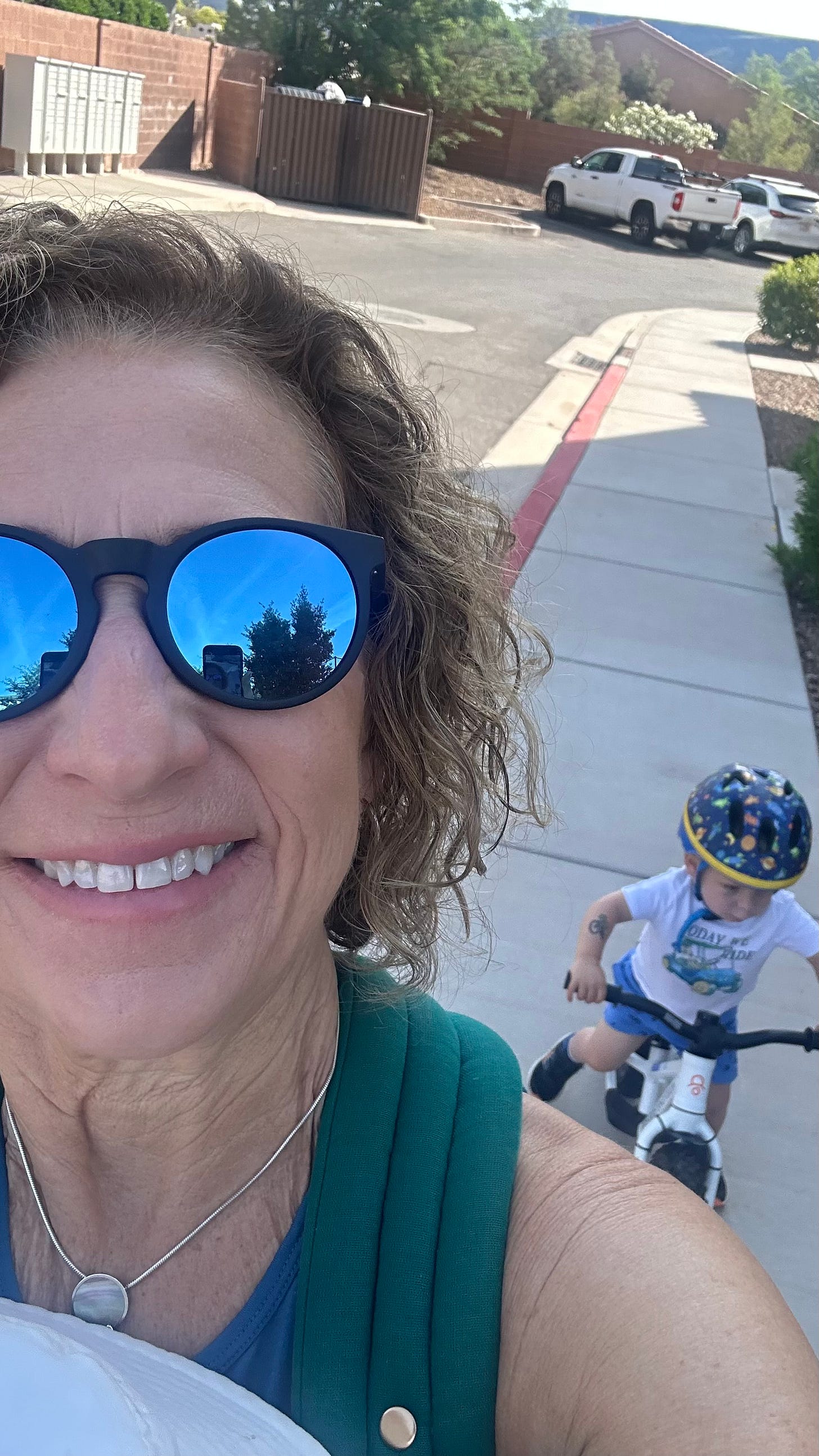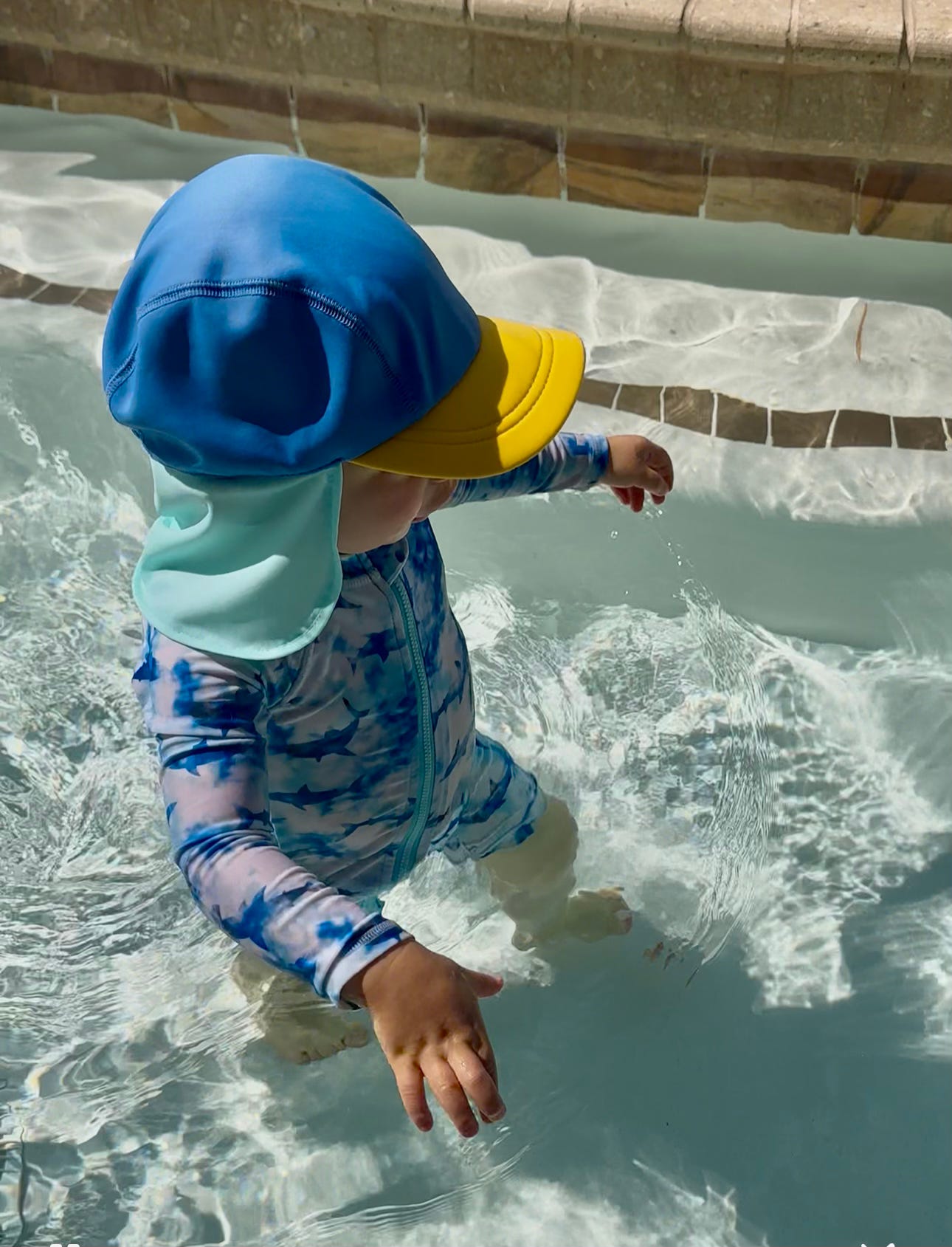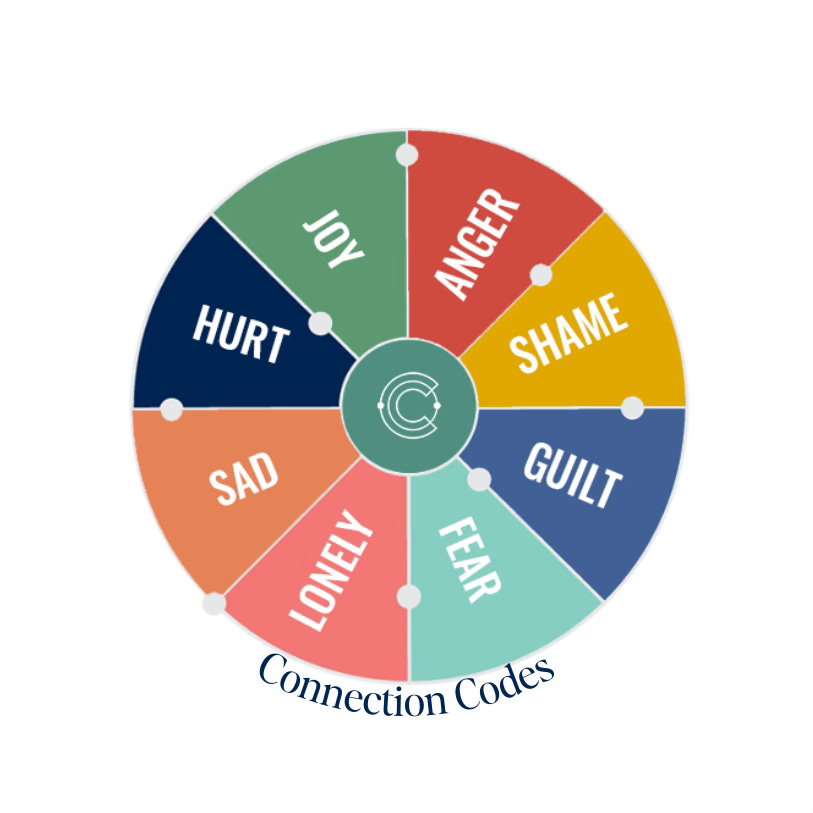As it turns out, looking after kids in your sixties is not like riding a bike. You can’t just hop on and assume it all will come back to you.
That hasn’t been my experience, anyway.
I babysat my grandsons, two-year-old Finn and 3-month-old Ezra, on my own while their parents went hiking for the day during our vacation in Southern Utah. My husband, Jeff, went on the hike; I stayed back at the resort with the boys.
The first ten minutes were easy-peasy: I had Ezra attached to my upper body so he could nap in his preferred manner—snugged up in a front carrier—and Finn was riding his balance bike beside me as we walked up the street.
As Jeff and Finn’s parents drove away in the truck, they honked the horn while excitedly waving goodbye to us. Finn waved in return, and then it suddenly hit him: three of his favorite people were driving away without him.
He burst into tears and proceeded to lie down on the pavement.
Momma! Momma! Momma!
Oh dear…
Finn went from being pumped about the bike ride to being hysterical in mere seconds. I silently wondered why parents complain about the moodiness of teens when toddlers seem to carry a special anointing for demonstrating “big emotions” with no prior warning. (Teens will at least alert you with the slam of their bedroom door.)
I immediately tried to connect with Finn by agreeing that it was sad that Momma and Dadda drove away in the truck without him, and told him that I was sorry he was so upset. I did a great job at staying calm and managed to avoid trying to use logic—” they’ll be back soon”— to get him to stop crying.
Still, my stellar empathy skills did nothing to get Finn off the ground and back on his bike. He was a tiny ball of tears and snot yelling, “Momma, Momma, Momma!” while pointing in the direction where she disappeared around the corner.
My heart hurt for him.
After much cajoling, I finally managed to get Finn on his feet, but he refused to get back on his bike. He wanted me to carry him.
“Uppy! Uppy!” he wailed.
Even though I feel pretty good about my fitness abilities, carrying the bike, Ezra, and a sobbing toddler seemed like a step too far. I resorted to what any sensible parent would do: I bribed distracted him by offering to take him to the swimming pool if he would walk back on his own.
This calmed him down enough to hold my hand and walk. I felt like a superhero with Finn clutching one hand and carrying the bike with the other. Oh, and let’s not forget the sleeping infant strapped to my chest…
My confidence in my (grand) parenting skills soared.
Little did I know that I was about to get a reality check at the swimming pool.
(Seconds before the meltdown👇)
A Story of Trauma
We set ourselves up at the baby pool—just one foot of water—and proceeded to have a ball kicking and splashing together. While Finn was crawling around the edge of the pool, I took the opportunity to hold Ezra as he dipped his feet in the water. We were having a grand time, especially considering just thirty minutes prior, we were in full meltdown mode.
When Ezra signaled he had had enough, I got up to put him back in the stroller while Finn was walking in the water. If you are a parent of young children, you might be shouting a word of warning at this very moment: “No, no, no! Get Finn out of the water first!”
Thanks, dear reader, but you are already too late.
I had no sooner gotten Ezra into the stroller when Finn fell and, in an instant, was submerged under the water.
Fear and horror fueled the burst of adrenaline that surged through my body. I took one step down and pulled him up with the force of a geyser. Within seconds, he was up on the side of the pool screaming, Momma, Momma, Momma, before my brain could fully catch up with what was happening.
We both were in a state of shock.
(Before the fall👇)
Trauma Repair
Although Finn was physically fine, he was deeply distressed by what had happened; it was terrifying. I held him tight and started to breathe deeply, for both our sakes. We needed a nervous system reset.
Once Finn’s sobs subsided, I knew I needed to help him make sense of what had just happened so that the terrifying experience would not get lodged in his brain as trauma. Justin Whitmel Earley explains why this is important in his book, Habits of the Household:
Trauma—whether physical or emotional—affects us deeply, body and soul. Moments of trauma reorganize our patterns of thinking. Sometimes these are awful moments we typically associate with trauma. But it’s important to know that traumatic moments can also happen at much more ordinary moments of hurt, loneliness, fear, or anger. It’s important to remember that the most important role of a parent is not protecting them from these moments but identifying and repairing them after they happen.
As Finn sat on my lap, I began to recount what had happened to begin the repair process.
“Finny fell down in the water and swallowed some water. It was very scary! But then Gigi picked you up and held you while you cried. You are safe with Gigi. And now Finny doesn’t feel scared anymore.”
I recounted the story a few more times until Finn could fill in the blanks himself.
“Finny, what happened in the swimming pool today?”
“Minny fell down. Minnny bit scared. Minny cried.”
“And then what happened?”
“Gigi pick Minny up.”
“Yes, Gigi picked you up and held you so you didn’t feel scared anymore. Finny’s all better now.”
“Minny all better.”
Finn and I rehearsed the traumatic situation over and over until he had resolved what happened in his mind. When his parents came home later that day, he was able to tell his parents exactly what happened in a matter-of-fact, if not downright “proud of himself” manner.
Finn has been back in the pool without any problems since then.
Trauma Triggered
One of the reasons I’m sharing this story is that just the week before this incident happened, I experienced a surprising traumatic response to a somewhat benign event.
Jeff and I were away in Moldova on a mission trip, and I texted my friend leading the trip to see if she wanted to meet me for coffee one morning. She replied that she was already in the coffee shop and that I should come anyway.
About fifteen minutes later, I walked into the shop and was shocked (and I’m not exaggerating) to see my friend, her husband, and another couple on the trip, all having breakfast together. I was flooded with so much emotion—sad, hurt, lonely, shame—that I felt like someone had punched me in the stomach. The sense of betrayal I felt was overwhelming.
I blurted out, “I’m so sad you guys are here eating without us!”
All four of these dear people started to offer a logical and quite reasonable explanation of how the meal came to be. They wanted to be sure I understood that I was not intentionally overlooked; however, their words did not alleviate the overwhelming feeling in my body.
I tried to sound casual as I fought back tears: “Oh, don’t worry. I’ll just get coffee to go and have breakfast at our apartment. It’s totally fine.”
My friends insisted that I stay.
Although they tried their best to (again) explain how this happened, I couldn’t take their words in. My sympathetic nervous system was fully activated, and my thinking brain had switched off.
I had the urge to flee.
The one thing that kept me from running away was the shame I felt at my reaction. I was desperate not to show how unbalanced I felt.
I was able to carry on some sort of conversation, although I have no idea what we spoke about. It was only when Jeff and I walked back to our apartment that I began to share with him the full extent of my emotions. After speaking about what I felt did not make the pain go away, I finally understood that I was having a trauma response.
Jeff asked me what I needed.
I think I just need to cry…

Trauma Recovery
If my reaction strikes you as overly dramatic, you are right. In fact, that is my point: you know you are dealing with trauma when your response to an event is out of proportion to the event. My extreme reaction is what clued me in that something was going on beneath the surface.
After I got a physical release from my sadness (tears and deep breathing), I sat quietly and prayed: God, what is going on with me right now?
Although I didn’t see a specific memory, I sensed God showing me that the source of my pain lay in my childhood. I had layers of rejection, loneliness, and grief that still needed to be processed. As I sat with God, I slowly realized that I had been lonely for most of my life.
At first, this surprised me; I grew up in a big family and have always had many friends. However, loneliness has more to do with being known and celebrated by others rather than the number of friends we have.
After spending those few minutes in prayer with God, I shared what was going on with Jeff and my friends. Just as Finn learned to put words to what he went through to help make sense of his story, I needed to do the same.
Sharing our story with other safe people helps us to be known.
Take Aways
Whether we recognize it or not, you and I often act from the places we were wounded, especially in childhood. Unprocessed pain continues to shape our identity, relationships, and view of God and self. Christian therapist and podcaster, Adam Young, maintains that you can’t heal what you do not name.
In a small but significant way, this is the process I went through with Finn. He needed someone to help him name the fear he felt and then help him walk through that fear with a safe person who would not disregard his experience by telling him he was fine(!). Instead, by allowing him to name the fear and be with him in it, I demonstrated what God promises: He is with us in our fear (Isa 41:10).
So what does this mean for you?
Below are a few suggestions to help you think about how this post may apply to you:
Commit to naming your emotions: Your emotions are messengers about what is happening inside. To disregard your emotion is to disregard your experience. If I had shoved down the hurt and sadness I felt when I walked into the cafe where my friends were eating, I would not have discovered the mountain of pain I have been carrying around for most of my life. The Core Emotion Wheel is a great tool to help you relearn this skill.
Commit to helping others name their emotions: This applies to anyone in your life, but most especially with your children. Teaching children to name their feelings and giving them permission to express and process those emotions is a critical life skill. Far too many of us have been told, “You’re fine!” when we’re not, or have been disregarded when we needed someone to help us navigate the ups and downs of life.
Commit to getting curious about your triggers: Try to lean in when you overreact or have patterns of behavior that you can’t seem to shake. Some of my behaviors I don’t like—my people-pleasing, my anger, my desire to run away—are rooted in traumatic experiences that I need to name and then be healed from. What patterns of your behavior need to be explored?
Get curious about patterns of disconnection/dissociation: Addictions, numbing behaviors (overeating, undereating, endless scrolling, alcohol/drugs/porn, overwork) may indicate you have unprocessed pain in your past. Ask God to show you if you are disconnecting somehow.
Consider exploring your story as a way of honoring the truth: There are many ways to do this, but a good place to start could be reading Adam Young’s book, "Make Sense of Your Story." It's also helpful to do this with a wise guide, counselor, or trusted friend.
Invite God into your story: God is deeply committed to being with us through our pain. His goal is to bring healing and redemption. He does not tell us “You’re OK” without looking at where we are NOT OK. Instead, He wants us to process our pain with Him. As Christian therapist Dan Allender says, “Jesus doesn’t skip over our story: He enters into it.”
A simple way to invite God into our story is to ask, “Lord, where were you when X happened in my life?” Trust Him to show you the answer to that question.
In summary, unprocessed pain and childhood wounds continue to shape us. Healing begins by naming our emotions, making sense of our stories, and inviting God into the process. If you need help doing this, I would love to help you.
Dear Reader,
What part of this post resonates with you, if any? Have you taken steps to invite God into your story? 👇







I loved your story and explanation. It was so helpful. I cried reading your story. I will definingly implement some of your advise and strategies. Thanks for sharing.
Thank you so much for sharing the work you have done in a way that helps others to grow. These issues are key for emotional health!